21st CENTURY DEMOCRACY
Research-based Commentaries
In this websection, MIT's School of Humanities, Arts, and Social Sciences draws on the expertise of our faculty and colleagues across the Institute to provide research-based insights and resources for strengthening democracy at home and around the world.
Democracy Homepage
Gallery of Publications
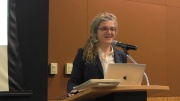
Centering feminism: Investigating marginalized women and potential empowerment
Lerna Ekmekcioglu, MIT’s McMillan-Stewart Associate Professor of History and the director of MIT’s Women’s and Gender Studies program, researches a more inclusive feminism.

STRENGTHENING DEMOCRACY
A Sampler of MIT Research on U.S. Democracy
A distilled selection of key research, news, and media commentaries from the past year on the state of U.S. democracy, from scholars in MIT's humanities and social science fields. What can leaders and We, the People do to sustain our democracy? Prepared for 6 January 2022.

STRENGTHENING DEMOCRACY
Charles Stewart III on elections in a hyper-partisan era
What can Americans do to protect our democracy? "The 2020 election showed the resilience of the fact-based part of the election administration system — election administrators, judges, and research institutions (including universities) — that have stood for the rule of law in the face of illiberal attacks on election administration. Opponents of fair elections recognize this and have attacked all parts of this fact-based bulwark."
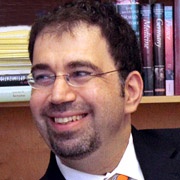
POLITICAL SCIENCE
3 Questions: Daron Acemoglu on the “dangerous situation” still facing the U.S.
The author of “The Narrow Corridor,” about the battle to sustain democracy, weighs in on the country’s political condition.
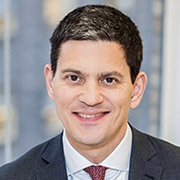
DEMOCRACY | HUMAN RIGHTS
Rt. Hon. David Miliband SM ’90 receives the 2021 Robert A. Muh Alumni Award
His award lecture proposes an "accountability agenda" to restore respect for human rights, democratic norms, and the rights of civilians in combat zones.
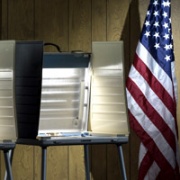
DEMOCRACY
What must the U.S. do now to sustain its democracy?
In the aftermath of the insurrection at the U.S. Capitol, MIT political scientists and historians discuss how to strengthen U.S. democracy.

STRENGTHENING DEMOCRACY
What’s Next? Challenges Ahead for the Biden Administration
A series of essays by MIT SHASS scholars, including: Melissa Nobles, Taylor Fravel, Vipin Narang, Dick Samuels, Elizabeth Wood, Barry Posen, Richard Samuels, and John Tirman.

DEMOCRACY
Starr Forum: Global Partnerships in a Time of Crisis
Experts discuss the need for democratic governments to create a contract for shared risks, including Covid-19, climate change, and war.
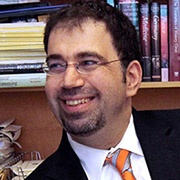
DEMOCRACY
The permanent struggle for liberty
Daron Acemoglu’s new book examines the battle between state and society, which occasionally produces liberal-democratic freedom.

MAKING A JUST SOCIETY
The Bluest Eye turns 50
Commentary by MIT Professor Sandy Alexandre on Toni Morrison's debut novel: "Morrison’s exquisite language has always given her readers a variety of ways, routes, and turns of phrase to understand the world, so perhaps it’s no surprise that she has rendered something like 'structural racism' comprehensible."
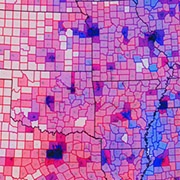
ELECTION 2020
3 Questions: Adam Berinsky on the responsibilities of political leadership and how to assess election polls
"It's the job of our leaders to stand up and challenge unsubstantiated rumors and outright falsehoods. Politicians have tremendous power to lead and to shape information, and voters need to remember this when they head to the polls — in this and every election."
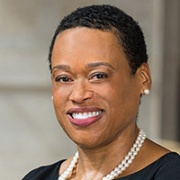
MAKING A JUST SOCIETY | RESTORATIVE JUSTICE
Unearthing the stories of yesterday’s George Floyds
"When we call the victims’ descendants to share our findings, they tell us ‘I never thought I’d get this call.’ The scars remain, and luckily, because we have found documents, so does proof." — Melissa Nobles, Professor of Political Science; MIT Chancellor 2021 - ; Kenan Sahin Dean, MIT School of Humanities, Arts, and Social Sciences 2015-2021
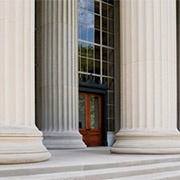
DEMOCRACY AND DEI
Making A Just Society
Resources from the MIT School of Humanities, Arts, and Social Sciences. The Making A Just Society websection includes these categories: Research; Books; the MIT & Slavery Project; Indigenous Peoples; Undergraduate Courses; Free Online MIT Courses; Other MIT Resources; and Elective Affinities, relevant resources beyond MIT.
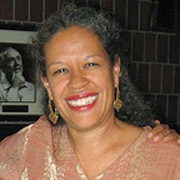
MAKING A JUST SOCIETY | DEI
Everyone's work
Professor of Writing Helen Elaine Lee calls for more engagement in creating racial justice.
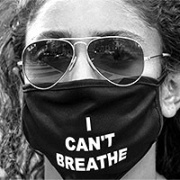
THE MEANINGS OF MASKS
A collective cry for justice | Graham M. Jones
Anthropology
"The mask is one of the most important human artifacts in all of anthropology. It is a tool of transformation that allows its wearers to transcend themselves, taking on timeless roles in ritual dramas, and as actors in a broader social drama."
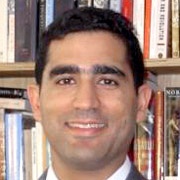
MAKING A JUST SOCIETY
Voices from the MIT Community Vigil
Historian Malick Ghachem delivers remarks on a divided moment.
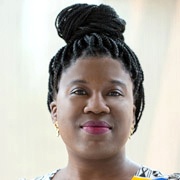
MAKING A JUST SOCIETY
Words + Words + Words
Sandy Alexandre, Associate Professor of Literature, honors and thanks all of the justice-seeking words that came before our 2020 ones.
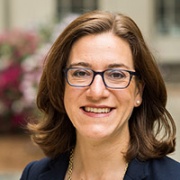
CLIMATE 2020 | HUMANISTIC PERSPECTIVES FROM MIT
Parrish Bergquist '19 | Civic Opinion
"The political challenges of addressing climate change are at least as thorny as the technological challenges, though in different ways."
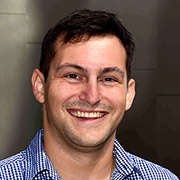
VOICES OF MIT SHASS GRADUATE STUDENTS
Meet Marc Aidinoff, PhD candidate
"What does it mean when civil rights become about access to computers and the Internet? When lack of Internet access is considered a form of poverty? These questions were getting under my skin. I wanted to know how social and economic policy were tied to changing ideas about technology."
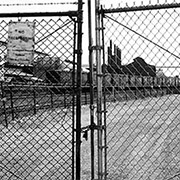
DEMOCRACY | ELECTION INSIGHTS
Christine Walley on Work, Stories, and American Identity
"Building bridges requires going to the experiential core of our own stories, developing interpretations to make sense of them — and also listening carefully to the stories of others."

DEMOCRACY
Reading for the Midterm Elections 2018
As the 2018 midterms approach, MIT SHASS faculty offer a selection of books to consider for your reading list along with notes on the insights each book holds for this moment in American history.
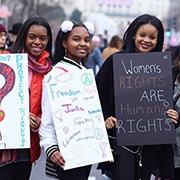
ELECTION INSIGHTS 2018
Helen Elaine Lee | On Women Candidates of Color
"A record number of women have filed as candidates this year, and a record number have won primaries in House and Senate races. Even if these milestones don’t result in a slew of wins in November, these candidates have changed established notions of what is possible."
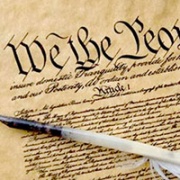
ELECTION INSIGHTS 2018
Daron Acemoglu | On Civil Society and Democracy
"What is written in a constitution can take a nation only so far unless society is willing to act to protect it. We have to keep reminding ourselves that the future of our much-cherished institutions depends not on others but on ourselves, and that we are all individually responsible for our institutions."
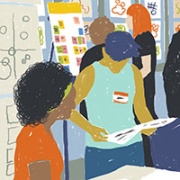
ELECTION INSIGHTS 2018
Sasha Costanza-Chock | On Media Technology and Immigration Policy
"The new wave of intersectional social movements, largely led by social media–savvy younger women and femmes of color, is the key to a transformation of our polity that represents the dreams and aspirations of the new millennial majority."

ELECTION INSIGHTS 2018
Justin Khoo | On Democracy and Civic Discourse
"Elections are helpful reminders (as if we needed any) that we do not all agree. We must somehow figure out how to get along despite our disagreements. In particular, we may wonder whether, and to what extent, we should tolerate views we disagree with. Is discursive intolerance, in some cases, required to promote a well-functioning marketplace of ideas?"

DEMOCRACY
Devin Caughey | On Contemporary Partisan Politics
"There are no easy solutions to polarization, but one possible way to ameliorate it is to make political parties stronger. One of the ironies of contemporary American politics is that partisanship is strong, but parties are, in important respects, weak."

ELECTION INSIGHTS 2018
John Tirman | On Reducing Gun Violence
"A social movement to challenge America's reslient gun culture has rocked politics for the first time in a generation, and might shake up congressional complacency in the midterm elections."
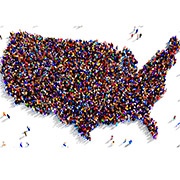
21ST CENTURY CITIZENSHIP
Election Insights 2018
Research-based perspectives from MIT
Commentaries on key issues along with a lively playlist—Music for the Midterms—and an Election Booklist of works selected by faculty as illuminating for this moment in American history.

ELECTION INSIGHTS 2018
Jennifer Light | On Social Media and Youth Political Engagement
"Although discussions about youth and new media tend to assume that it is something about the technology itself that is responsible for political and social changes, in fact, the political possibilities associated with contemporary media are highly contingent upon societal power structures."

Election Insights 2106: Sally Haslanger on Gender Bias
"As long as 'being presidential' and 'looking presidential' are about being and looking masculine, we will be unable to address what is ripping us apart as a country. Arguably, the androcentrism of our political system...is dangerous for the well-being of our republic."
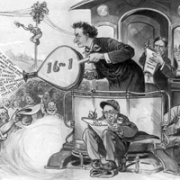
Election Insights 2016: Heather Hendershot on Political Rhetoric and Outsider Candidates
"As a historian of American political media, it is always my instinct to ask how we can use the past to understand the present, and, from this perspective it is useful to back up and consider how the rhetorical strategies of outsider candidates in earlier elections may help to put the Trump-Clinton election into context."
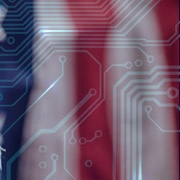
Election Insights 2016: Charles Stewart III on Election Integrity
"The current election administration system is far from perfect and continues to stand in need of improvement. However, intimations that it is fundamentally corrupt and rigged against one candidate or the other are not only false, but needlessly undermine the legitimacy of those who are elected to office." — Charles Stewart, Kenan Sahin Distinguished Professor of Political Science
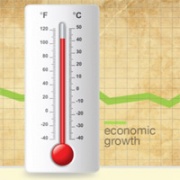
Election Insights 2016: Benjamin Olken on the Economic Impacts of Climate Change
"The increase in average temperature translates into many more extremely hot days. These matter, even in the US: researchers have found that the increased number of extremely hot days lead to lower agricultural yields, lower economic activity in industries exposed to outdoor temperatures, such as construction and mining, and even to increased mortality."
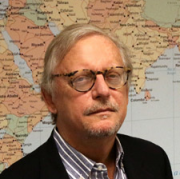
MAKING A JUST SOCIETY
Election Insights 2016 | John Tirman on Immigration
"Negative attitudes toward immigrants have many roots. The economy and 'job stealing' have often ranked high on the list of grievances, but several studies — including one just released by the National Academy of Sciences — demonstrate that immigrants of all kinds boost the U.S. economy overall and hurt few if any native-born Americans. So, what really mobilizes anti-immigrant attitudes?"

MAKING A JUST SOCIETY
Election Insights: Ariel White on Racial Attitudes and Bias
"There's evidence that government is less responsive to people of color. In my work with Julie Faller and Noah Nathan, we have found that election officials are less likely to respond to informational questions about voting eligibility when they're sent from Hispanic-sounding names than when they're sent by non-Hispanic white names. These officials didn't respond rudely to Hispanic questioners; they simply didn't write back as often, and didn't answer their questions as well."

Election Insights 2016: Andrea Campbell on Health Care
"The 2016 election offers voters a stark contrast on health care. Who should get health insurance coverage in the future, and how should it be funded? The stakes are large — both for the nation...and for individuals."
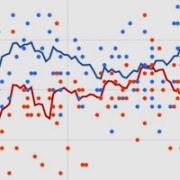
Election Insights 2016: Adam Berinsky on Electoral Polls
Don’t be distracted by any single poll. The media tend to highlight polls that are surprising — those that paint a different picture of the state of the race than the pack of the others. Resist this tendency."
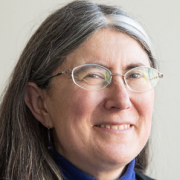
21ST CENTURY CITIZENSHIP
Election Insights 2016: Elizabeth Wood on the Putinization of Politics
"The casualty of the 'Putinization' of American elections is the creation of a Reality TV style of campaigning based on machismo, a loss of authenticity, and a failure to acknowledge the importance of institutions, laws, and solid economic policies designed to increase the general welfare of the nation."

Election Insights 2016: Edward Schiappa on the Campaign Discourse
"The U.S. has a history of unseemly bursts of crude and deceitful campaign rhetoric, beginning with outrageous slander slung between John Adams and Thomas Jefferson in 1800. Nonetheless, the sense that this year’s election rhetoric is different than usual is well founded."
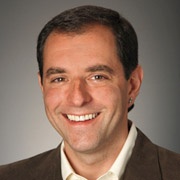
21ST CENTURY CITIZENSHIP | RESEARCH
Election Insights 2016: David Autor on Jobs, Economic Security
"The Earned Income Tax Credit (EITC), enacted in 1975 and enlarged by both Republican and Democratic administrations, is among the nation’s most significant tools for reducing poverty and encouraging people to enter the workforce. One of the most promising policies for assisting non-college workers is expanding the EITC to cover childless workers and non-custodial parents."
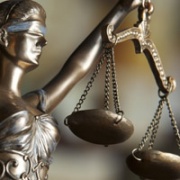
CRIMINAL JUSTICE REFORM
Election Insights 2016: Malick Ghachem on Criminal Justice Reform
"Criminal law is no longer (if it ever was) only about 'criminals,' or even about 'crime.' It has become a matter of everyday life for far too many people."

HEALTH CARE | EQUITY
3 Questions with political scientist Andrea Campbell
Healthcare is both a political and a technical issue
"Any initiative to address health and health care goals must wrestle with and address the enormous disparities that exist in health coverage, access, and outcomes across racial and income groups in the United States. It’s as if poor or black Americans are living in a different country, and in terms of poverty, health insurance, and health care access, effectively they are. This is a political and social problem as much as a technical one."
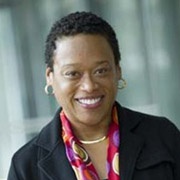
RESEARCH TO POLICY | ADVANCING JUSTICE
3 Questions | Melissa Nobles on advancing racial and restorative justice
Melissa Nobles, Dean of the MIT School of Humanities, Arts, and Social Sciences, and Professor of Political Science, researches historical injustices in democracies. MIT SHASS Communications spoke with Nobles in 2015 about the ongoing aftermath of shooting deaths in Ferguson, New York, and Cleveland, and what her research suggests about the current efforts to advance civil rights in America.